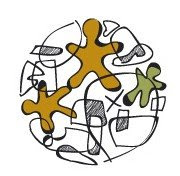Presseerklärung
Am Freitag, 16. September, verhandelt der Oberste Gerichtshof Griechenlands über das Rechtsmittel, das Gülaferit Ünsal gegen die Entscheidung des Berufungsgerichtes von Thessaloniki eingelegt hatte, mit der ihre Auslieferung nach Deutschland angeordnet wurde.
Nichts aber rechtfertigt Ihre Auslieferung.
Auf Grundlage eines Haftbefehls der deutschen Behörden wird Gülaferit Ünsal der Mitgliedschaft in einer „terroristischen Organisation“ beschuldigt. Die einzige Grundlage dafür ist ihre legale politische Aktivität, d. h. der Verkauf von Zeitschriften und ihre Teilnahme an Solidaritätskampagnen für türkische politische Gefangene.


